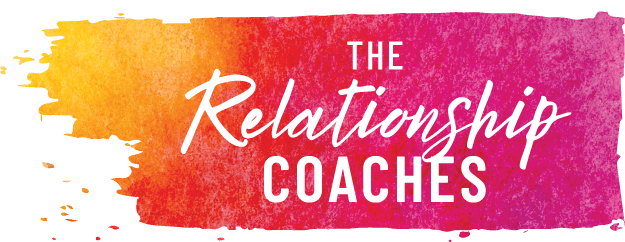How Do You Show Up In Your Relationships
I've always wanted to be one of those girls who talks football.
I’m not.
But, because I love pop culture and feel-good, based on a true story kinda movies, I’ve seen “The Blind Side” with Sandra Bullock and Tim McGraw, and so I know about the football term “blindside.”
Not rocket science - as the name suggests, “blind side positioning” is simply where a player positions themself (i.e. Michael Oher) to protect the quarterback's blind side.
The key thing here is knowing what side is the blind side? Where is the blind spot? If you don’t know, you can’t set yourself up to protect it.
The same can be said for our relationships and how we show up in them.
So it starts with self-awareness.
If we have a blind side, and we aren’t aware of it, then we can’t protect ourselves from the blindside hit. If we are aware of our blind side, we can prepare. We can set up our own offensive lineman to protect ourselves.
(Not real offensive lineman of course - but if you’re following the analogy, your protection comes in the form of self-awareness, being able to identify your own bad habits/cycles and altering your behaviour, seeking the relationship tools like asking for what you need, or showing love how your partner wants to receive it, etc.).
So, do you really know how you show up in your relationships?
We would argue that you don’t. Not completely anyway.
Our experience has shown us that even our most self-aware clients have a blind side, a way they are being that they are unable to identify on their own (hence the term “blind” so, NOT THEIR FAULT), OR, a way they are being that they aren’t owning up to (because denial is a real thing).
So how do we start to bring awareness to how we are truly showing up?
Want to improve your relationships by becoming a self awareness badass? Here are three ways you can get started on your own:
Don't accept your thoughts as truth. Question them. Journal on them. Meditate. Take some time to be alone with yourself. Wherever you realize that your thoughts may not be true, what comes up? How is that thought serving you if it isn’t actually true? What IS true about the thought?
Treat your emotions as messengers. First you need to get to the root of what you’re feeling. Usually the emotion we think we are feeling is actually acting as a bodyguard for another emotion. An emotion we would typically avoid at all costs because we hate feeling THAT way. (Maybe THAT way for you is anger, or sadness). When you really let yourself feel the emotions you typically ignore, deny, or distract yourself from feeling, those emotions can bring with them a deeper message of how you are being that may not be working.
Ask for feedback. And stay curious. (okay that was a fourth - couldn’t help myself). What better way to discover and identify your blind spots than to ask others who have a different viewpoint. A different angle from which they see you than how you see yourself. There are two tricks to this one. First, only ask the people in your life who have earned the right to give you feedback (as Brene Brown would say - your marble jar people). Second, remain curious about what they tell you! Accept that what they tell you may make you feel uncomfortable, but remaining neutral and not becoming defensive is key to actually finding value in the feedback. (And key to not creating unnecessary conflict).
Self-awareness is central in the relationship you have with yourself. And the relationship you have with yourself is foundational to the rest of your life!!
Change your relationships. Change your life.
